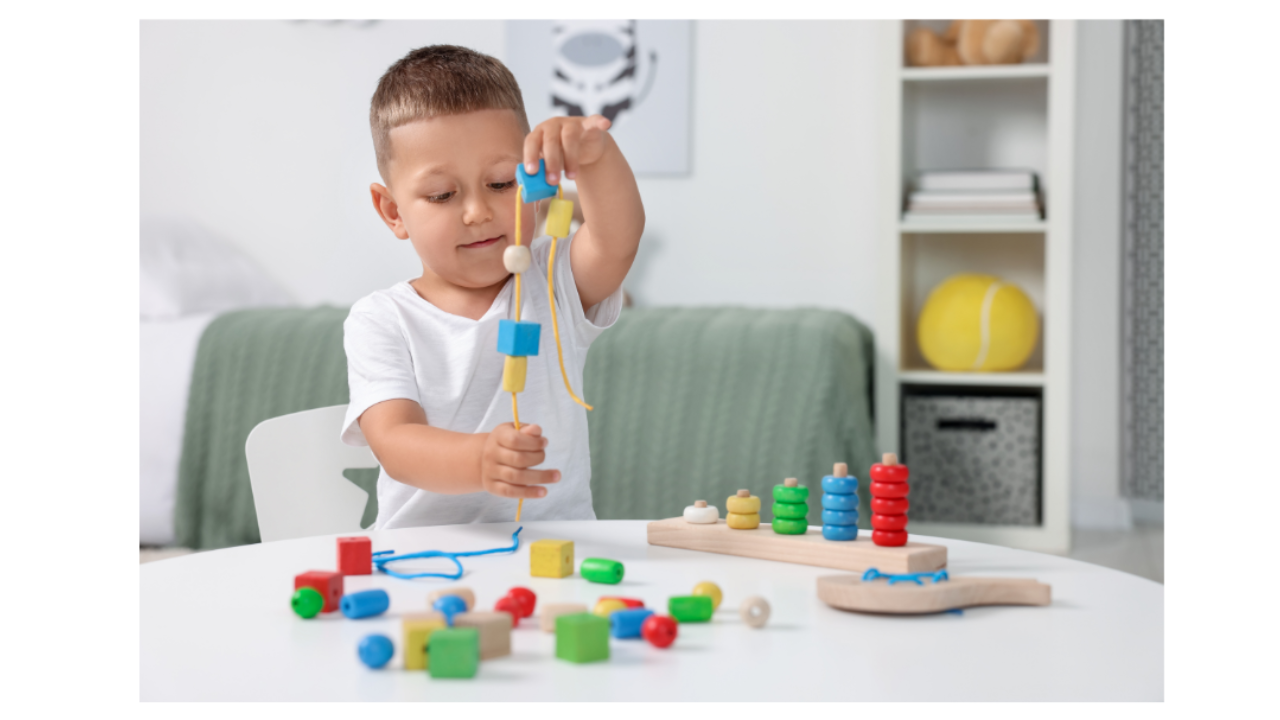Raising Kids Who Can Play Without You and Still Feel Connected

Contributing Writer: Jill Lerman
If you’re a parent with young children at home, then you know that finding a way to keep your children occupied and engaged so that you can find time to get things done or have a moment to recharge can be a challenge.
Maybe you feel like you’re in a cycle of constantly entertaining your child.
Maybe your child is having more screen time than you’d like because it just feels like the only way for you to get anything done.
As a mom who is juggling running my own business as a play and parenting coach and consultant, while also being the primary caretaker for my daughter, independent play has been a lifeline for me, and for many of the clients I work with.
And as someone who has worked in early childhood for 15 years, I can also tell you that independent play is incredibly important and beneficial parts of your child’s early years too. It allows for creativity and problem-solving. Playing independently builds independence and confidence in other areas of your child’s life as well. The most productive play, problem solving, and joyful discoveries happen when a child explores independently without adult direction.
Learning how to encourage and incorporate independent play into your child’s daily routine can have a positive impact on both your child and you. But many parents often feel guilty or neglectful about prioritizing independent play.
Here are a few of my favorite ways to maintain your beautiful bond and connection while still raising kids who can play without you:
Know your child’s preferences
Paying attention to what your child enjoys is a key part of supporting your child’s independent play journey. Our job as parents is not to be a constant entertainer, but a facilitator of play. This means observing and understanding your child’s current play styles, the characters they’re currently into, what is fascinating them at the moment and using that information to support their play. It also allows you to make sure the current selection of play materials and the environment is serving their current needs. This makes a child feel thought of, loved, and seen.
This is also where play prompts and invitations to play can be effective. Children are always more likely to play for longer periods of time when something follows their current interests. Think putting out a laundry basket with some rolled socks to toss into for a child who is currently fixated on throwing objects. Or placing a favorite toy in an unexpected location.
Be nearby
Most young children cannot get deeply involved in play unless they feel secure that their caregiver is nearby within earshot and sight, especially if independent play is new to them. This may mean getting creative about where your child plays. Try placing a few favorite toys in the corner of your home office or finding a spot in their playroom where you can send some emails or fold laundry.
Connect outside of play
We don't need to be in a cycle of setting up complicated Pinterest-perfect crafts or constantly entertaining or playing with our child for their play to be meaningful or for them to feel connected to us.
Let your child help with a household task you need to do, go for a walk, be fully present during caretaking parts of your routine like snack time or bath time. Play is just one of MANY ways to connect with your child.
If you are just starting the journey with independent play, remember that every child is unique. Some children might be more prone to play on their own, and some children might not. But I assure you that regardless of their temperament and personality, every child can learn how to play independently.
Check out Jill's website www.jillybeansnyc.com to learn more about how to work with her 1:1, join her monthly Playful Parenting membership, or listen to her podcast, The Art of Playful Parenting.
Ready to see more independent play? This free resource that will help you get more time back for yourself while your child is learning and playing independently. Grab my free guide to independent play at any age!
Find Jill on Instagram: www.instagram.com/jillybeansnyc
Contributing Writer: Jill Lerman, Play and Parenting Coach

Check out Jill's website www.jillybeansnyc.com to learn more about how to work with her 1:1, join her monthly Playful Parenting membership, or listen to her podcast, The Art of Playful Parenting.
Ready to see more independent play? This free resource that will help you get more time back for yourself while your child is learning and playing independently. Grab my free guide to independent play at any age!
Find Jill on Instagram: www.instagram.com/jillybeansnycSubscribe to my newsletter - The Core4Connector
Check your inbox every Monday at 11am EST for Collaborative Parenting stories and direct links to weekly Podcast episodes.
We hate SPAM. We will never sell your information, for any reason.
